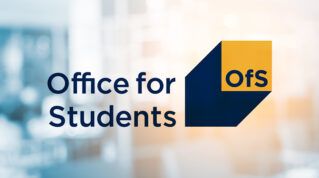FE providers already evidencing excellence might not need another framework, writes Stephen Corbett
The introduction of the Teaching Excellence Framework (TEF) for higher education has created another mechanism of reviewing FE providers. This, in addition to existing audit mechanisms, such as Ofsted, does raise a question: is it really useful to layer “quality audits” on to FE providers?
The breadth of provision offered by the FE sector is a real attribute to our education system. One aspect of that offer is university-level studies. This delivers a distinct benefit in terms of choice and opportunities for students.
I’m sure we are in no doubt that it is important students have an excellent learning experience. But mechanisms intended to ensure this are often widely debated.
Higher education courses offered by FE providers are a small proportion of the sector’s overall provision. About 118,000 students are studying higher education in 162 colleges this year, according to the Association of Colleges. That’s 6.9 per cent of all students in FE.
By comparison, there were 2.7 million students undertaking HE courses through both colleges and universities in 2020/21 (this year’s data is not yet available).
While not a direct comparison, it is reasonable to extrapolate that FE providers are responsible for about four per cent of HE students.
The vast majority of the FE sector’s remaining provision is already subject to continuous external quality review.
Some higher education curriculum offered by further education providers can fall outside of this framework. However, much is within it, including initial teacher education and higher apprenticeships.
Overall, the provision sitting outside of the current quality framework is limited when considering the overall work of a further education provider.
Furthermore, it has been necessary for further education providers to meet national higher education quality standards as laid out by the Quality Assurance Agency for higher education and through subject benchmarks.
This is not to say provision being continually reviewed is not valuable. When reviews are done in a supportive way that facilitates useful reflection and dialogue, it can enhance the student experience.
However, caution should be exercised when considering the different mechanisms for review. This is particularly the case where they might create an unnecessary burden to providers already evidencing excellence.
It is not uncommon for FE providers to work with universities in developing and delivering HE provision. Such collaborative programmes offer students access to wider resources, facilities and expertise.
Where strong collaborations exist between FE providers and universities, there are distinct benefits for students, employers and the education providers themselves.
Of course, we could cynically suggest that a key driver for collaboration is financial benefit for both further and higher education institutions. However, there are far greater advantages other than the “bottom line”.
Layering more quality assurance systems may not be the most effective solution
A key advantage is the two-way knowledge exchange that takes place. Both providers have expertise that each can benefit from, and there are many examples of highly effective collaborative relationships.
Each year, excellent teaching and collaborative working are recognised by Advance HE, the professional membership scheme, through its national teaching fellowships and collaborative awards for teaching excellence.
Such initiatives share good practice and it could be suggested are an effective way of encouraging true innovation in educational working practices and pedagogy.
In recent years, FE and HE sectors have experienced higher expectations from both students and regulatory bodies such as the Office for Students.
The latter has sought to clarify expectations of participation, student experience, outcomes and value for money. This greater level of transparency and choice for students is very valuable.
But we should also be reflective on what the most effective and proportionate mechanisms for achieving this are.
Layering more quality assurance systems may not be the most effective solution, and certainly isn’t the only one.

















Your thoughts